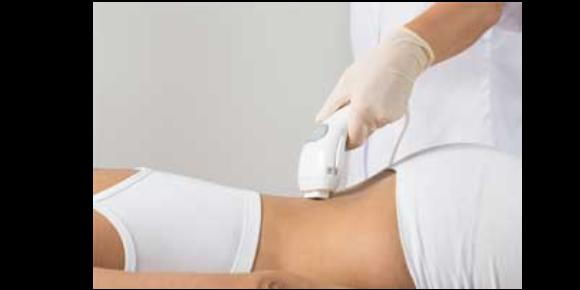
- posted: Jan. 16, 2019
Low Level Light Therapy (LLLT)
What is Low Level Light Therapy?
Laser therapy has been known to reduce pain, inflammation and edema, promote the healing of wounds, deeper tissues and nerves, and prevent tissue damage. Low level laser (or light) therapy (LLLT) is also known as “cold laser”, “soft laser”, “bio stimulation”, or “photobiomodulation”.
LLLT involves exposing cells or tissue to low-levels of red and near infrared (NIR) light. This process is referred to as ‘low-level’ because the energy or power densities used are low compared to other forms of laser therapy such as ablation, cutting, and thermally coagulating tissue. Essentially it is a photochemical effect comparable to the process of photosynthesis in plants where the light is absorbed by the cells and triggers a biochemical change.
This phenomenon was first published by Endre Mester at Semmelweis University in Budapest, Hungary in 1967, a few years after the first working laser was invented. Mester wanted to conduct a study to see if the laser would cause cancer in mice. He shaved their backs and then divided the mice into two groups. The treatment group received laser therapy and surprisingly their hair grew back twice as fast as the non-treatment group, and they also did not show any signs of cancer.
What can LLLT do for pain?
Pain can be either acute or chronic, and is entirely subjective to the person experiencing it, meaning that it is not measurable and can differ from person to person.
“A review of 16 randomized clinical trials including a total of 820 patients found that LLLT reduces acute neck pain immediately after treatment, and up to 22 weeks after completion of treatment in patients with chronic neck pain.”
Acute conditions cause pain that can last days, weeks, or months, such as sprains, strains, post-surgical pain, a whiplash injury, muscular back or neck pain, cervical or lumbar radiculopathy, and tendinitis. Chronic conditions cause pain that can last six months or more, such as osteoarthritis, rheumatoid, arthritis, frozen shoulder, neck and back pain, epicondylitis, carpal tunnel syndrome, tendinopathy, fibromyalgia, plantar fasciitis, and chronic regional pain syndrome. Luckily, these conditions mentioned above can be well managed and treated with laser therapy. Neuropathic pain conditions can also be treated with LLLT, such as trigeminal neuralgia, post-herpetic neuralgia, and diabetic neuropathy.
At the most basic level, LLLT turns off the pain pathway by inhibiting the action potentials of the nerves from firing, where there is an approximately 30% neural block within 10 to 20 minutes of application.
How can CoreHealth Wellness help?
At CoreHealth Wellness we offer Cold Laser Therapy and Infrared Therapy. If you would like more information on how LLLT can become a part of your health regimen, or would like to schedule an appointment, call 214-219-3300 today!
References:
Avci, P., Gupta, A., Sadasivam, M., Vecchio, D., Pam, Z., Pam, N., & Hamblin, M. R. (2013). Low-level laser (light) therapy (LLLT) in skin: stimulating, healing, restoring. Seminars in Cutaneous Medicine and Surgery, 32(1), 41–52.
|
Chung, H., Dai, T., Sharma, S. K., Huang, Y.-Y., Carroll, J. D., & Hamblin, M. R. (2012). The Nuts and Bolts of Low-level Laser (Light) Therapy. Annals of Biomedical Engineering, 40(2), 516–533. http://doi.org/10.1007/s10439-011-0454-7 Cotler, H. B., Chow, R. T., Hamblin, M. R., & Carroll, J. (2015). The Use of Low Level Laser Therapy (LLLT) For Musculoskeletal Pain. MOJ Orthopedics & Rheumatology, 2(5), 00068. http://doi.org/10.15406/mojor.2015.02.00068 |
Michael R. Hamblin, Michael R. Hamblin, Tatiana N Demidova, Tatiana N Demidova, "Mechanisms of low level light therapy", Proc. SPIE 6140, Mechanisms for Low-Light Therapy, 614001 (10 February 2006); doi: 10.1117/12.646294; https://doi.org/10.1117/12.646294
CONTACT US TODAY
We look forward to hearing from you
Location
Find us on the map
CoreHealth Wellness
3500 Oak Lawn Ave #650
Dallas, TX 75219, US
Office Hours
10:00 am - 6:00 pm
3:00 pm - 7:00 pm
10:00 am - 6:00 pm
3:00 pm - 7:00 pm
10:00 am - 1:00 pm
Closed
Closed

